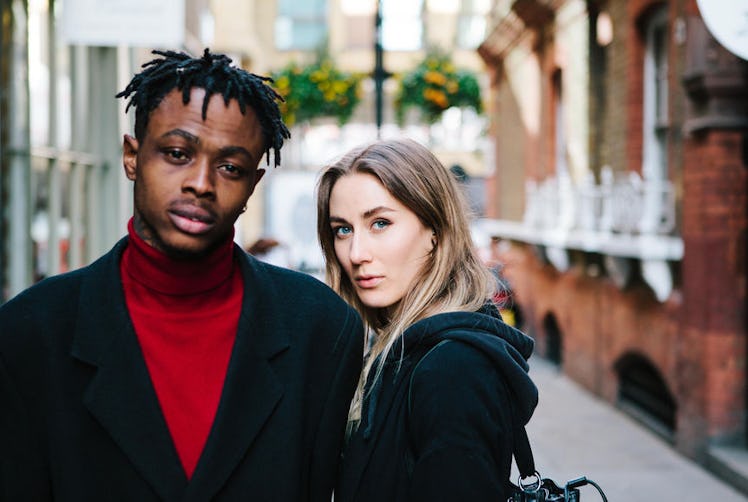Deciding to start couples therapy is a big step in any relationship. Whether you're trying to address any pressing issues between you and your SO ASAP, or you just want to learn about healthier ways to handle conflict in the future — there's absolutely nothing wrong with seeking professional help. But opening up about the private details of your relationship can be really scary for some people. That's why knowing the normal things that happen at couples therapy before attending your first session can help calm some of that anxiety.
It's important to realize that going to therapy is something everyone can benefit from at some point in their lives, and there's absolutely nothing wrong with seeking help. Even if you're not sure if it'll be helpful, the truth is, you and your partner will be able to make a much more informed decision about whether or not therapy is right for you after you've given it a try. I spoke to Dr. Gary Brown, a prominent couples therapist in Los Angeles, to find out what first-time therapy attendees can expect to happen during the session. The good news is that it's not nearly as daunting as you might expect.
01You'll be asked to fill out some forms about your relationship.
"In my practice, new clients fill out information that helps me understand the present problems that bring them to therapy; what are some of the signs and symptoms they are noticing that are impacting them as a result of the challenges they are facing; and a few informed consent forms outlining the process of therapy," Dr. Brown tells Elite Daily.
You know how every time you visit a new doctor you have to fill out information about your medical history? This is basically another version of that but on the topic of your relationship.
02The session begins with further questions from your counselor about why you've decided to start couples therapy.
"I then ask them what brought them here today — and especially the timing of why they are here now," explains Dr. Brown. "There is something about the timing of when people ask for help that is important to know."
Dr. Brown also emphasizes the importance of his clients feeling comfortable and like they're in a supportive environment where they can open up. So, if you're a bit on edge in the beginning, rest assured that a good therapist will do their best to make you feel as relaxed as possible.
"If they seem a bit nervous, which is certainly understandable, I always ask them if there is anything I can to to help them feel safer," says Dr. Brown. "It's important to help people feel a nice rapport and establish trust as well."
03The therapist will also ask you what your short and long-term goals are for your relationship.
"I like to ask new clients what they would like to accomplish in their first session and how they would like me to help," says Dr. Brown.
If you're not sure how to answer any questions your therapist asks, don't be afraid to ask for clarification. After all, they're there to help you with your specific concerns, which requires them to establish a deep understanding of your relationship dynamic and goals.
04The therapist acts as a moderator, so any issues you're having can be discussed in detail.
"Once we've established the first three, we simply begin talking in more detail," explains Dr. Brown.
This is the time to get into the nitty gritty of how the two of you are feeling, and your therapist is there to facilitate the dialogue and help you come up with useful strategies to keep things running smoothly.
"I emphasize that during the session, I ask each person to speak for themselves, and to wait for the other person to finish before speaking," says Dr. Brown. "If the session goes well, I then ask them if they would like to continue in counseling and we proceed from there."
Even though the idea of starting therapy can seem like an indication that things aren't going well between you and your SO, this couldn't be farther from the truth. All couples have things they're working on improving, and you should feel super proud that you and your partner are mature enough to seek help in the areas you can't work out on your own.
Check out the “Best of Elite Daily” stream in the Bustle App for more stories just like this!
